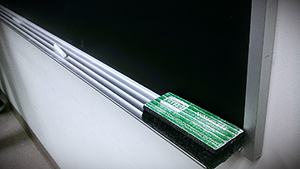In this section, Susan Murcott reflects on how EC.719 D-Lab: Water, Climate Change, and Health is structured to give students a role in teaching, and what practical strategies have proved most successful in implementing that portion of the course.

Students were involved in teaching the course. (Image courtesy of travel2write4u on Flickr. License: BY-NC-SA.)
One important element of the course is that students are teaching. It’s not that Julie [Simpson] and I come in knowing everything. We’ve been learning a lot ourselves as we’ve had these opportunities to teach. And so we have it in the syllabus that students give tutorials. Every student or team of students gives a tutorial as part of one of our three-hour classes. The first hour is usually a lecture or guest lecture, and then we move on to a 15-to-30 minute tutorial delivered by an individual student or a student team, followed by the project-based learning part of the activities, a discussion of the readings, and a general discussion of the thematic topic of the week.
"Every student or team of students gives a tutorial as part of one of our three-hour classes."
Because many students are pretty nervous about the teaching element of the course, I help ease them into it by making sure that the first few students or teams to present are more senior students or even fellows, so that the less experienced students get more comfortable. Additionally, the classes in D-Lab are relatively small, so the atmosphere is pretty non-threatening.








